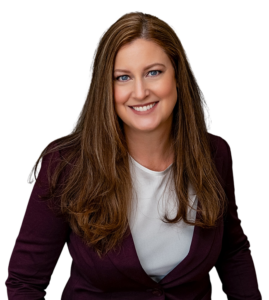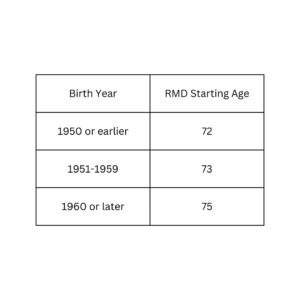I started Financial Journey LLC at the beginning of 2021. There were several reasons why I started my own business (during a pandemic!):
Health Event
In June of 2020 we had a major health event in my immediate family that could have ended much worse than it did. When you have a scare like that, you start thinking about everything that you take for granted and what it is that matters most to you. For me, experiencing that there might not be a tomorrow with a loved one really emphasized that time with family is something that I value most. Even though we were at the beginning of the pandemic and not having to go into the office every day, it made going into the office that much worse. If you’ve ever been to the DC area, then you know how bad traffic is. During pre–Covid times, I would leave my house in the dark and come home in the dark because traffic would at least double the amount of time it takes to drive the route. Then on the weekends, I was simply preparing for the next week and doing chores I couldn’t get done during the week. It just was not enjoyable and did not seem logical to spend all that time commuting because I barely saw my family during the week.

Location Freedom
With the pandemic came a lot of Zoom interactions. Remote work was on the rise before the pandemic, but Covid really skyrocketed remote work and Zoom interactions. Having the ability to do everything that you need from a laptop really gives you the freedom to be anywhere. Because of Covid, many offices gave up their office space and let their employees work remotely. When I started my business, I knew I wanted it to be completely virtual. I even thought about getting an RV and traveling around the country for a year with a laptop for work. Being completely virtual allows me to spend more time with my family because all I need is a laptop.

Access
Another thing I had tapped into while gaining experience at other firms is that most of our clients were retirees or came to us to see if they could retire. What about the younger generations that haven’t built up their nest eggs yet? Most firms require you to move your pot of assets to them so they could charge a fee based on your investment assets, which is why younger people miss out on advice until later in life. I joined XY Planning Network who understands that the younger generations are underserved and have been pioneers in the movement for Fee Only advice and offering different types of access to financial planning–which encompasses so much more than investment management. Luckily, I have been able to provide different ways to work with me—not only giving access to a Financial Planner without having a large pot of money, but also providing low–cost options so that financial planning is available to more people than just the wealthy.

Education
I really love all the different areas of financial planning and putting all the pieces together. I don’t like surprises when it comes to money and taxes and if you know how all the different pieces work, then there is little room for surprises when it comes to your money. Obviously, there’s no way to plan for life’s surprises, but if you understand how all these different pieces work (or work with someone who does), you can navigate things much better. You don’t know what you don’t know, and some decisions can have a huge impact on your finances. It is nice to have a thinking partner when you are faced with some of these decisions.
These are the main reasons that I started my own business. I love helping people get organized with their financial lives and educating them on how to best use their resources. Being able to do this from anywhere, having the ability to help more people than traditional financial institutions, and meeting people where they are is rewarding for me.
If you are looking for a trusted partner to help you navigate financial decisions, we are here to help. Schedule a meeting with us today to see how we can help you with your own financial journey.
Financial Journey LLC is a registered investment advisor offering advisory services in the states of Alabama, Florida, Virginia and in other jurisdictions where exempted. Information provided is for educational purposes only and not, in any way, to be considered investment or tax advice.




















